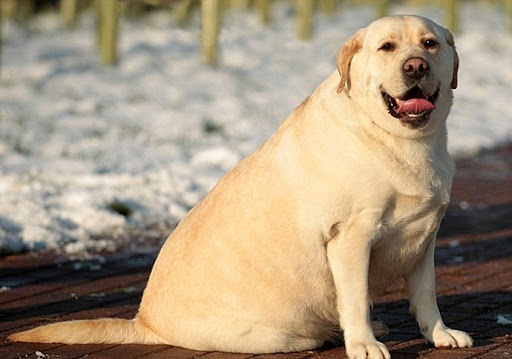Labradors will eat almost anything you give them, but for a healthy and active life, they need a proper diet. Chicken, lamb, and turkey-based foods are a dog’s favorite diet. These are also easy to digest and don’t lead to any stomach upset. Beef is best avoided, as it is more difficult to digest and can lead to certain gastrointestinal disorders.

Remember that his diet should have a proper combination of proteins, carbohydrates, fats, vitamins and amino acids. It should also contain minerals such as magnesium, potassium, calcium, phosphorus and so on.
There are so many kinds of dog foods available in the market. Don’t go in for cheaper ones, because they compromise on quality. Always look for actual meat products in the list of ingredients. Some use bones and feet that merely make your dog feel full without giving him any nourishment. If you are preparing his feed at home, remember it should have about 70% cereals and 30% meat. There should be a good amount of calcium supplements too.
The question is how much should you feed your dog? A Labrador’s food requirements change as he grows older. A small pup needs to be fed at least 3-4 times a day till the age of four months. A young pup needs to be fed more frequently because he is in a growing stage and yet, his stomach is small. Once your dog is fully grown, you can restrict his diet to two meals a day.
Usually, when the pup is small, he is given wet feed since it is easier to swallow and digest. However, it has very less fiber content that is necessary for bowel movement, so as he grows up, you can shift to dry feed. Dry feed, though, is unpalatable and causes excessive flatulence. So, the best thing is to make a mixture of dry and wet feed. The dry feed helps in cleaning their teeth and actively promotes digestion.
Whenever you feed your dog, make sure his food doesn’t have too much corn meal or wheat. These merely swell up his stomach and make him feel heavy. While buying ready made food, always read the list of ingredients carefully. Avoid food using chemical preservatives. Soak the feed in water for some time. If it turns mushy, that means it contains more wheat or corn.
Protein is a very important component in your dog’s diet. Dogs have massive bone structures. They need calcium while growing up. An older dog might require less protein. Puppies and pregnant bitches require a special diet to cater to this requirement.
It is a myth that dogs are only carnivores. They also like vegetables and you can include them in his daily diet. You can give him vegetables such as carrots, broccoli, cauliflower etc. Always ensure that your dog has fresh water at all times.
A gleaming, thick coat shows that your dog is healthy. A balanced diet will keep your dog from many health problems. Consult your vet to inquire about the correct diet and portion sizes.